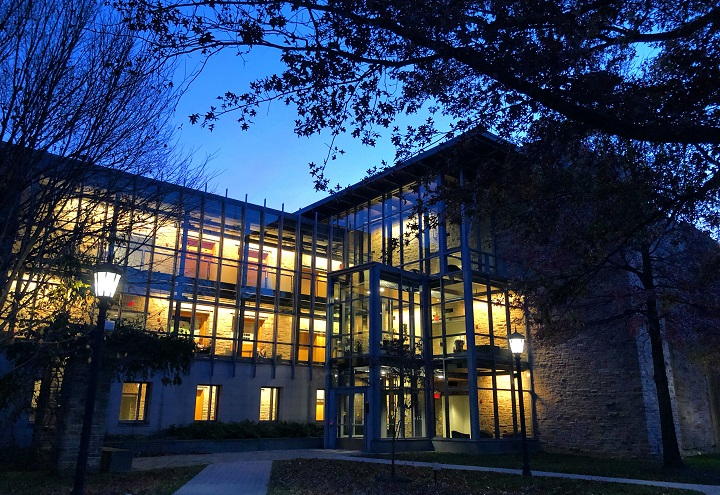Loyola faculty members receive NSF grant to research quantitative literacy among engineering students

Raenita Fenner, Ph.D., chair and associate professor of engineering, and Peggy O’Neill, Ph.D., professor of writing, have been awarded a two-year grant from the National Science Foundation to help educators prepare engineering students for successful careers. The $125,000 grant will support their project, “Collaborative Research: Research Initiation: Defining Engineering Quantitative Literacy.” Fenner and O’Neill are beginning work on the grant with their collaborators this summer.
“The main goal of this project will be to obtain evidence to develop a student model for future assessment instruments intended to measure first-year engineering students' quantitative literacy,” said O’Neill. "Another goal of the grant is to develop our skill as engineering education researchers by working with more experienced researchers, one at Purdue and one at University of Florida, who will serve as our mentors throughout the project.”
Fenner and O’Neill’s research will help identify college-level engineering students’ quantitative literacy, including computational, interpretative, reasoning, and communication skills in terms of quantitative information and data. This project aims to define the quantitative literacy expectations of first-year engineering students and create a means for measuring quantitative literacy, which will allow educators to better prepare future engineering students for success.
“Dr. O'Neill and I have been collaborating since 2017 in the best practices of teaching writing to engineering students,” said Fenner. “Through this research we aim to provide a holistic experience for engineering students—weaving together engineering and writing to set them up for success in their future careers.”
Using an evidence-centered designed framework, the research team will articulate a student model for assessing first-year engineering students' quantitative literacy through several studies. The research team will conduct a content analysis of introductory engineering curricula. Next, they will administer a follow-up survey of introductory engineering faculty to address more specifically the depth of learning expected of students. Then, a small sample of diverse first-year students will be interviewed to determine the opportunities they had to develop their quantitative literacy abilities. Finally, the results will define quantitative literacy within the specific context of engineering.
Loyola's four-year undergraduate program in engineering combines the University’s exceptional liberal arts resources with robust coverage of both traditional and emerging areas of engineering to produce graduates who are ready to excel in today’s diverse and rapidly changing environment. Students benefit from the University’s focus on academic rigor and teaching excellence while receiving broad-based instruction in engineering fundamentals, while also choosing to specialize in one of four concentration areas: computer engineering, electrical engineering, materials engineering or mechanical engineering.